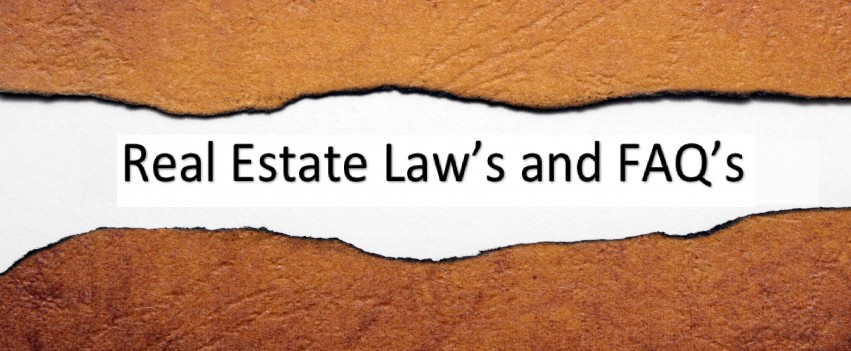
WHAT IS EARNEST MONEY?
Earnest Money is a sum of money paid by a buyer at the time of entering a contract to indicate interest and ability of the buyer to carry out the contract. Normally, earnest money is applied to the purchase price. Often the contract provides for Forfeiture of this sum if the buyer defaults out the contract. Normally, earnest money is applied to the purchase price. Often the contract provides for Forfeiture of this sum if the buyer defaults.
Earnest money agreement terms involve the property in question, the type of deed, price and terms of payment and also designate an earnest money deposit amount to be paid by the buyer to secure the sale.
How much earnest money is involved ? This really depends on both the buyer and seller as there is no fixed amount / percentage that sellers and buyers use. The basis of earnest money also depends on the amount involved in the sale. However, based on our experience, the following terms are followed :
1) 5 – 10% of the sale amount
2) Php 100,000 – Php 1,000,000 upon acceptance of offer
It’s either an amount or percentage of the sale involved.
The purpose of an earnest money is for the buyer to show faith in buying a property. This normally locks up the deal and the property involved until all terms and conditions agreed by both seller and buyer are met.
Since the property is on hold and has been pulled out of the market by the seller after earnest money has been received, a forfeiture clause is added into the contract wherein a portion of the whole amount paid by the buyer is forfeited in case the transaction doesn’t push through. Likewise, should the deal not push through because of the Seller, a penalty will also be charged on a mutually agreed amount in favor of the Buyer. Take note that this is something the forfeiture clause has to be mutually agreed by both parties.
HOW DO WE SUBDIVIDE A TITLE?
First check your title if subdividing of the lot is allowed…
If yes, consult a licensed geodetic engineer on how best to subdivide the property. Then execute Deed of Partition using the new technical description for the subdivided lands; then register it with the Registry of Deeds, pay the necessary taxes, registration fees etc. for the new TCTs.
CAN A FOREIGNER BUY A PROPERTY IN THE PHILIPPINES?
Although foreigners cannot own land in the Philippines, they can purchase units in condominium buildings, so long as foreign ownership in a single project will not exceed 40 percent. If married to a Filipino, the foreigner can buy land provided the title will be in his or her spouse’s name.
